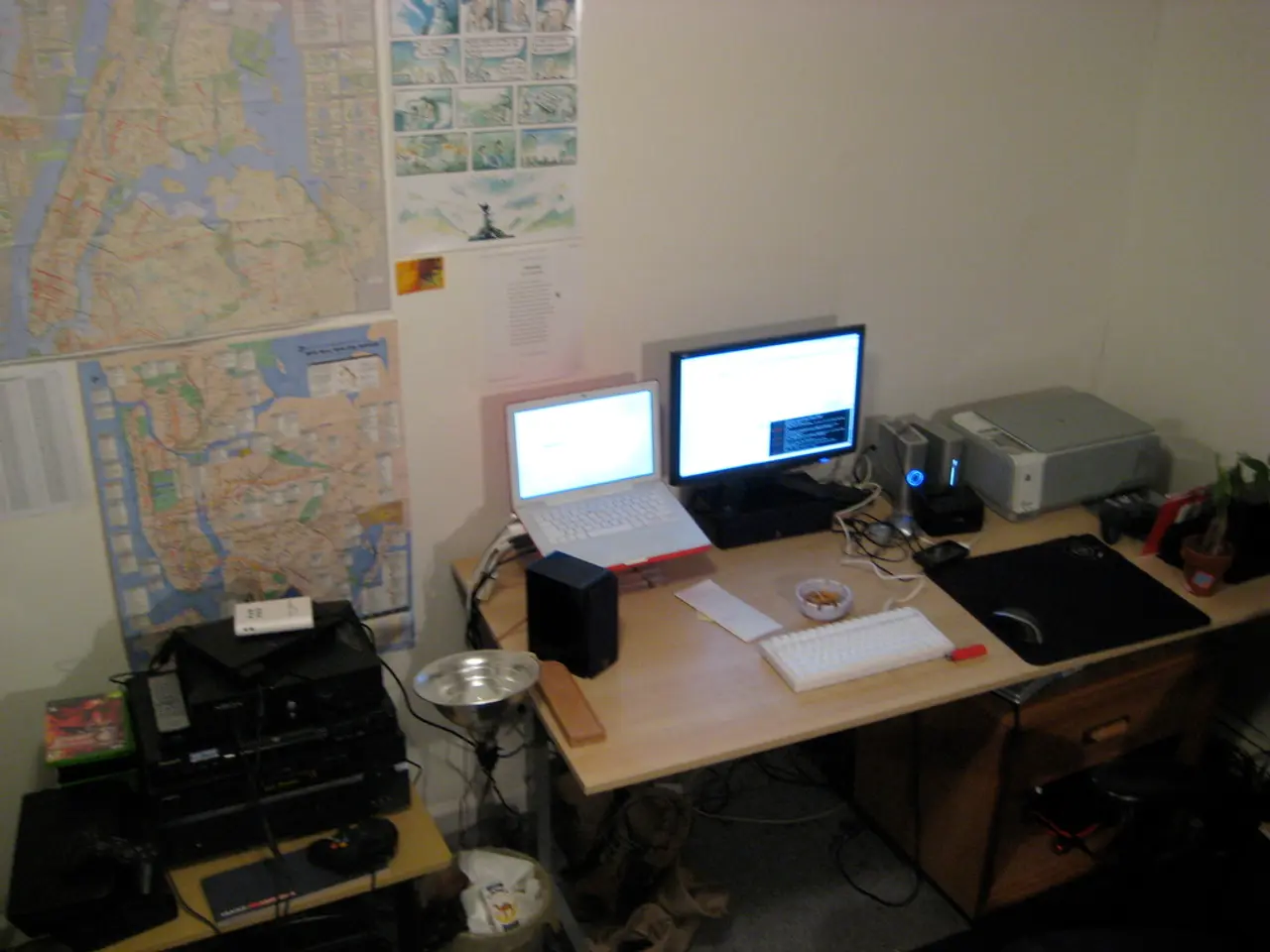Competing in the Modern Marketplace: The Imperative to Evolve or Perish
In a world where innovation is deeply entrenched as the key to economic growth, it's essential to challenge the linear interpretation of technological progress and question whether this relentless pursuit of growth is truly beneficial. This is the premise of the concept of degrowth, a movement that advocates for redirecting technology towards an inclusive, environmentally conscious transformation.
Technological determinism, the idea that technological innovations emerge spontaneously given certain conditions, has been called into question by science, technology, and society (STS) studies. The assumption that the number of annual patents a country produces reflects its wealth is problematic, as it overlooks the social and environmental impacts of technology.
Degrowth proponents argue for a shift in focus from material production to enhancing quality of life and services. This could lead to rising living standards without resource depletion. The goal should be to encourage innovations that improve societal well-being, promote social equity, and enhance environmental sustainability.
One of the challenges in achieving this goal is the rebound effect, where technologies designed to reduce resource use can sometimes lead to increased consumption. To avoid this pitfall, policies and education should be implemented to prevent increased consumption and ensure that efficiency gains are used for environmental benefits rather than fuelling further growth.
Digital commons and distributed manufacturing can play a significant role in this transformation. Collaborative design and open-source technology can make innovations more accessible and less resource-intensive, allowing for distributed manufacturing and local production. Decentralized governance models for AI and other technologies can ensure they serve diverse needs rather than reinforcing existing power structures.
Ecological and social considerations must also be incorporated into technology development. This means integrating ecological economics principles into technology development to ensure solutions respect planetary boundaries and prioritize sustainability. Community engagement is crucial to ensure technologies meet local needs and promote social justice.
However, innovation is not without its drawbacks. Platforms like Uber or Airbnb can erode workers' rights, drive gentrification in cities, and increase inequalities. Innovation can lead to job insecurity and social inequality in certain sectors. The AI software "Lavender," used by the Israeli army to automatically identify and eliminate suspected terrorists, has resulted in countless civilian casualties during the ongoing genocide in Gaza.
New technologies and automation can cause a mismatch between the skills required by new jobs and those possessed by displaced workers. The development of new technologies such as big data and artificial intelligence can enable states and private organisations to monitor and control the behaviour of individuals in unprecedented ways, undermining individual autonomy and privacy.
Examples of this include projects for wind and solar "gigafarms" in Europe, which can disrupt the natural landscape and threaten wildlife. The dramatic consequences of this are visible in the neighbourhood of Accra, in Ghana, where masses of e-waste from Europe wait to be processed by children and other vulnerable groups.
The view that technological development should be reoriented away from economic growth, and towards social justice, freedom, and ecological balance, emerged in the 1970s. The Lucas Plan, an alternative corporate plan focusing on socially useful and environmentally sustainable products, was devised by workers at Lucas Aerospace in the mid-1970s.
Today, researchers, practitioners, and activists within the emerging post-growth movement are striving to envision a culture of innovation rooted in creativity, care, repair, and maintenance. It's clear that science and technical change have existed in societies that did not pursue economic growth and will continue to exist in future non-growth societies.
In conclusion, embracing the principles of degrowth offers a promising path towards a more sustainable and equitable future. By redirecting innovation towards social justice, freedom, and ecological balance, we can create a world where technology serves humanity rather than exploiting it.
Science and technical change can provide opportunities for innovations that promote social equity, environmental sustainability, and healthier quality of life, as proposed by the degrowth movement. However, it's crucial to be mindful of the rebound effect and ensure that technological advancements do not exacerbate resource depletion or contribute to social inequality, as observed in cases like platform-based services and certain AI applications.



